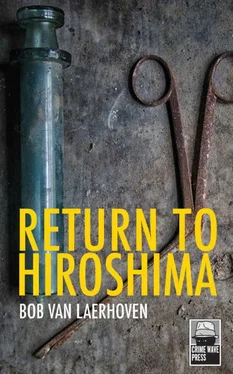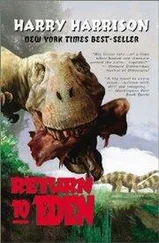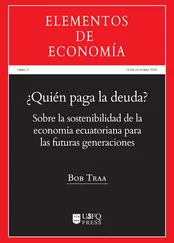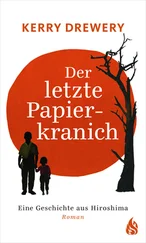“Do you think he’s still alive?”
“I’m not sure. But if he is, then I can ask him about my father, what he was like.”
“I can use my ministry contacts to find out.”
Takeda tried to hide the excitement his friend’s words aroused inside him. He wasn’t sure if it was working. Adachi gave him a strange, bemused look.
But the doctor said nothing. A week later, Takeda had a name and an address. And, finally, a way of finding out who he was.
* * *
The dog-tags belonged to a soldier named Masajiro Amitani, fifty-three year old, living in a home for the disabled in the city of Morioka in the Iwate prefecture. In spite of the patient’s relatively young age, his official malady was “atypical muscular dystrophy”. Takeda visited the place and gave a false name and occupation. He was well prepared. His job made it easy for him to secure forged papers and lying was a piece of cake. To add to his disguise he wore a pair of horn-rimmed glasses, which completely transformed his face, and a cloth cap, which was popular in Japan at the time, to hide the colour of his hair. Takeda felt awkward as he entered the building, but the management and the nursing personnel had no reason to suspect him. He was allowed to see the patient without the least problem.
What had he expected? A sturdy, robust man like himself? Masajiro Amitani was crumpled in his wheelchair, his eyes sunken, his cheeks hollow, his limbs dried out and brittle as a twig. But there was something determined in his gaze and tenacity in his demeanour that his wasted muscles belied. Takeda introduced himself as a civil servant doing research into veterans and their war past with a view to improving their maintenance allowances. Masajiro fell for it hook, line and sinker. Without the slightest hesitation – he was still every inch the patriot – he reeled off dates and the places he had been stationed.
“Camp Pangkalan-Balei?”
“Absolutely. Two years as a guard. Then they transferred me to Xinjing in China.”
“What did you do there?” Takeda avoided focusing his questions too quickly on the women’s camp in South Sumatra.
Masajiro hesitated for the first time in the conversation. His eagerness melted. The large Adam’s apple in his emaciated throat bobbed up and down.
“In my day that was classified information, sir.”
“I know,” said Takeda, although he had no idea what the man was talking about. He was relying on his intuition, and his intuition told him he had to pretend he knew exactly what the invalid ex-soldier was referring to. “But the government has decided we have to put matters right on the war. Patriots like you who fought for their country were left with a shadow over their heads. Isn’t it time you received the proper reward for your patriotism?”
Masajiro stared at him. The whites of his eyes were yellow and bloodshot. Takeda felt a prickling sensation in his hands, very weird. But he was otherwise calm and even a little lightheaded, as if he was watching this encounter as a third party witness.
Then the ex-soldier nodded.
And Akio Takeda learned for the first time in his life about Unit 731.
* * *
“It was a secret operation ordered by senior military officials who were in direct contact with the emperor. They insisted that we were the most courageous of patriots, the most loyal of soldiers, the guardians of Japan’s honour. Our superiors didn’t say much beyond that, but you know how things are: soldier to soldier. We heard stories from ex-servicemen that the seeds had been sown in occupied China and Japan for a master race that would avenge Nippon if capitulation in the war turned out to be unavoidable. In those days our cities had suffered heavy bombing, and while no one dared suggest that Japan was losing the war – on punishment of execution – we all knew it in our hearts. But that made us all the more determined, do you understand? It might sound strange to someone from a different generation like yourself, but we thought it was normal and even desirable that our best doctors conducted experiments on prisoners of war. I’m not a monster. I was often left shivering in my shoes when I had to carry the dying and the dead to the quarry outside the camp and saw what had happened to them. But I turned my heart into a stone because I knew that these sacrifices were being offered for the future of Nippon. They injected the prisoners with experimental agents designed in theory to strengthen their cells. They were then infected with the black plague or typhus, exposed to dioxins, extremes of cold and heat. They even tested how long they could stay under water before they drowned.
The experiments failed one by one, but new ideas emerged to replace them. Pregnant Chinese women were fed chemical cocktails designed to produce super strong wonder babies. They were then infected with syphilis and the doctors observed how the foetus reacted. Every now and then we were ordered to inspect the women’s manko . They had to stand on their hands and knees with their naked vulvas pointing upwards to allow the doctors to see if their medication had prevented the syphilis from taking hold. Sometimes they resisted, so we sat on them and held them by the throat to keep them still. If they didn’t do what they were told we strangled them. The syphilis made the manko swell, of course, and you didn’t need to be a doctor to see it. One day the doctor on duty was hit in the face by puss spurting from a vaginal wound he had pressed too hard. In the commotion that followed – the woman was immediately decapitated – I must have picked up some of the infected fluid. A few days later I came down with a fever and fainted. For some unknown reason, probably because of the chemicals they had injected into the woman’s body, the syphilis had mutated. The doctors were mystified. My muscles swelled up then wasted away and my bones started to disintegrate. I was rushed from Xinjing and admitted to a military hospital in Hiroshima located in a separate building a distance from the civilian hospital. No one was allowed in without authorisation. The doctors working in the place had all been recruited by Unit 731. I was given a pension of thirty-six yen per month. In those days a headmaster earned eighteen yen per month. I was proud. The government clearly valued my sacrifice for the fatherland.
I could still walk, albeit with difficulty, when the bomb fell. The hospital exploded like a nut under a hammer. My memories of that moment are jumbled together. It was as if I had indulged myself in some opium, which I did now and then in Xinjing to escape the things we had to do there. Flames and the screams of the dying are foremost in my mind, that and the feeling that my body was a dried ume, a prune hankering for water, water, water. The black rain fell on us, burning our skin. It tasted like sewage, but I opened my mouth and swallowed it all the same. Growling, groaning, gasping… those were the sounds that filled the world around me. The smoke made it difficult in places to see your hand in front of your face. Chance – or fate? – brought me to a primary school where people had gathered together. There was an enormous pit next to the school full of corpses; adults, children, but also horses, dogs, cats. The sight of it almost drove me insane.
I was later repatriated to Morioka where they took good care of me when they learned I was a war veteran. After the war I received a visit from a civil servant not unlike yourself who made me swear I would say nothing about Unit 731. We put together a story to explain why my body was in such a state. It was all due to the atom bomb and the hardships I had endured during the war in the Pacific. The man told me that it would take a while for people to realise that the things we did in Unit 731 were heroic deeds, things we did for Japan, things that would influence future generations, perhaps even all humanity. I’ve never forgotten what he said. I think about it when I’m awake and dream about it when I’m asleep. I hoped for years to receive news that our scholars had created a superman. But there was only silence and I continued to waste away. I often return to Xinjing in my dreams, and discover what we were looking for, how to improve the human race and restore glorious Nippon to its rightful place as the world’s leader. I’ve spent my entire life afraid that the Americans would discover our test results and succeed where we failed. They managed to exploit dioxin, didn’t they? We discovered it and they use it now already a couple of years in Vietnam.
Читать дальше












